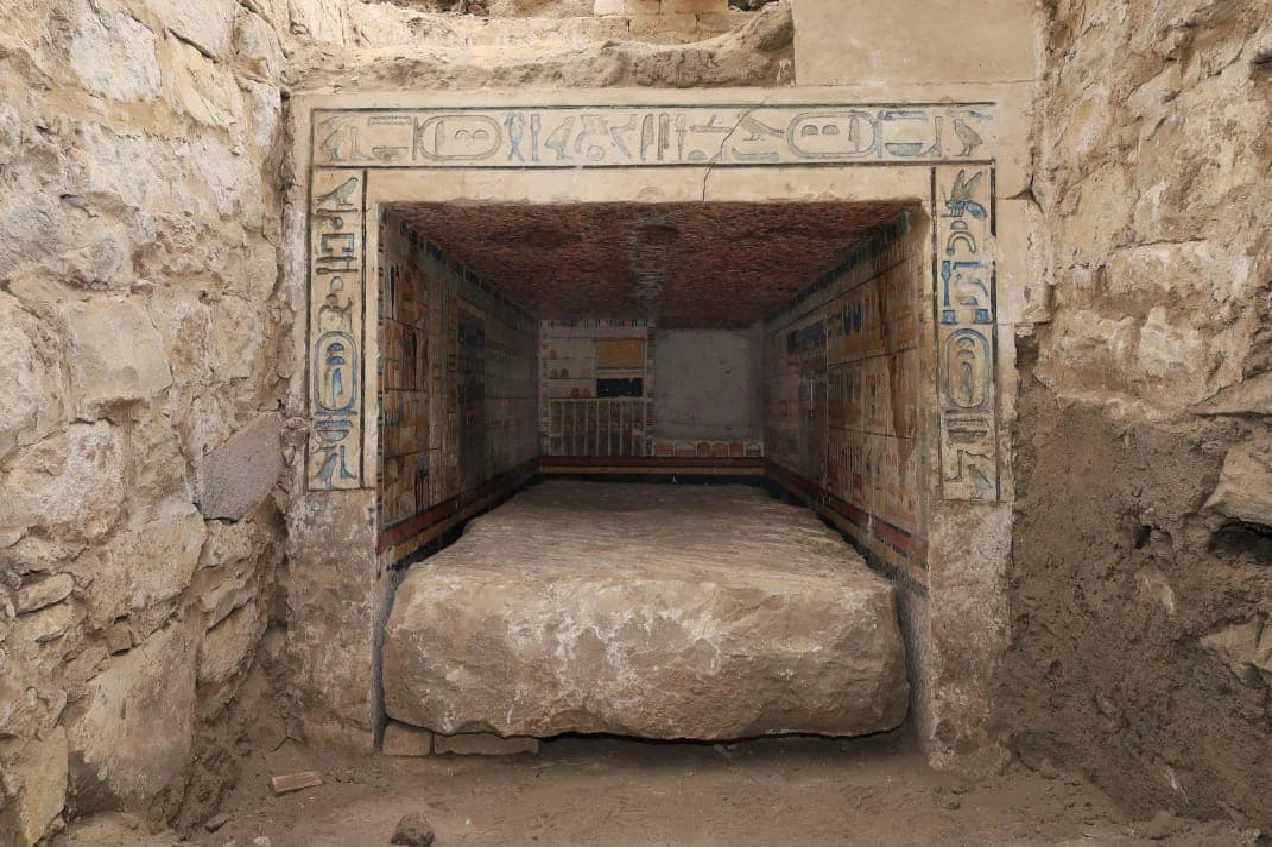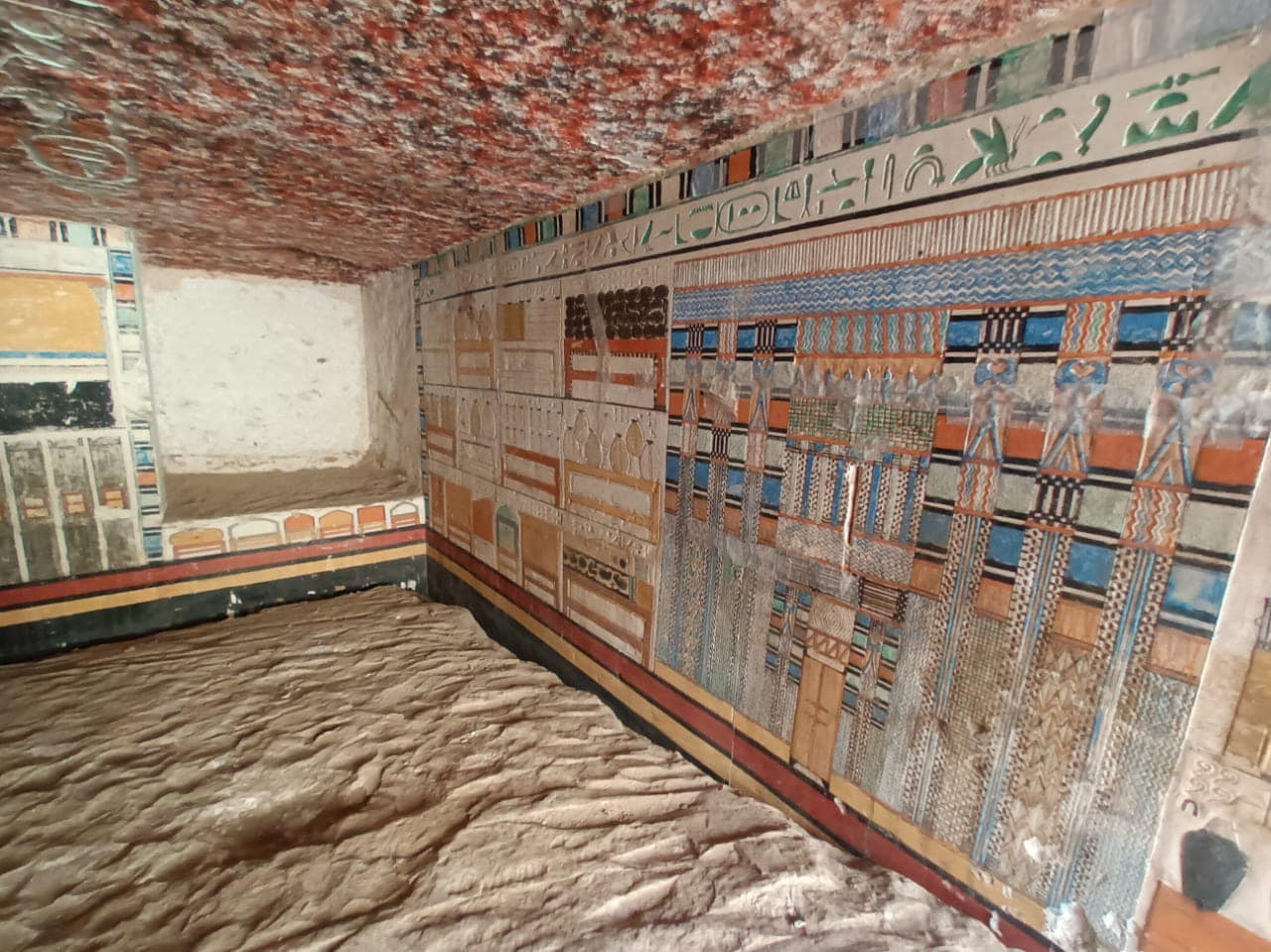A joint French-Swiss archaeological mission has uncovered the mastaba tomb of “Teti Neb Fu,” a royal physician from the reign of King Pepi II during the Sixth Dynasty.
Teti Neb Fu was a figure of great distinction, holding titles such as Chief Palace Physician, Priest and “Magician” of the Goddess Serket, Chief Dentist, and Director of Medicinal Plants.
He would have been partly responsible for the universally accessible healthcare system that included non-invasive surgeries, bone setting, dentistry, and an extensive range of pharmacological treatments.
The interior of the tomb is adorned with intricate carvings of funerary scenes, a painted false door, and a stone sarcophagus inscribed with the name of Teti Neb Fu and his titles.

The excavation also uncovered a red-painted ceiling resembling granite stones and engravings depicting furniture, funerary offerings, and a register of the deceased’s titles and honours.
Dr. Philippe Collombert, head of the French-Swiss mission, noted that the excavation is part of an ongoing study of the Saqqara area which is known for housing tombs and senior officials from the Old Kingdom.
Previously, the mission investigated the mastaba of Minister Weni, known for his extensive autobiography, carved on the walls of his Abydos tomb.
According to the Ministry of Tourism and Antiquities: “Despite evidence of ancient looting, the tomb’s walls remain intact, offering a rare glimpse into daily life and cultural practices during the Old Kingdom of Egypt.”
Header Image Credit : Ministry of Tourism and Antiquities
Sources : Ministry of Tourism and Antiquities





